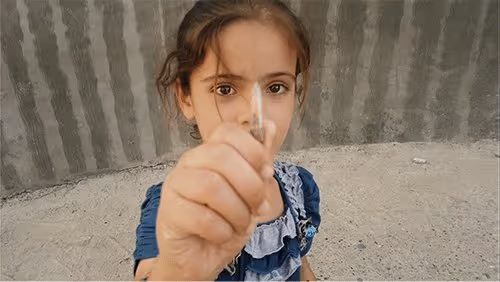Before and After: Asking Questions about Going to War Extensions/Adaptations
Extensions/Adaptations

Follow-up with an in-depth study of the War Powers Act. Investigate whether the act requires anyone to ask the questions that students thought were important. If not, what could citizens do to make sure important questions are asked before troops are sent into battle?
In English classes, use the activity as a springboard for reading a novel about war. Compare the book's descriptions of daily life with the film's depictions of Nori Sharif's life.
In history classes, use the activity as a springboard for examining the human dimensions of a war that students are studying (e.g., the Civil War or World War II). Invite students to examine what sorts of information their texts include (or omit) about immediate or lasting impact on civilians.
Examine how wars are covered in mainstream media and compare to the film. The free curriculum kits on Media Constructions of War, Media Constructions of the Middle East, and Media Constructions of Peace and Social Justice: Reflecting Diversity from www.projectlooksharp.orgare good starting points.
Have students who have been involved in restorative justice programs consider whether the principles and strategies they have learned can be applied to international conflicts.
